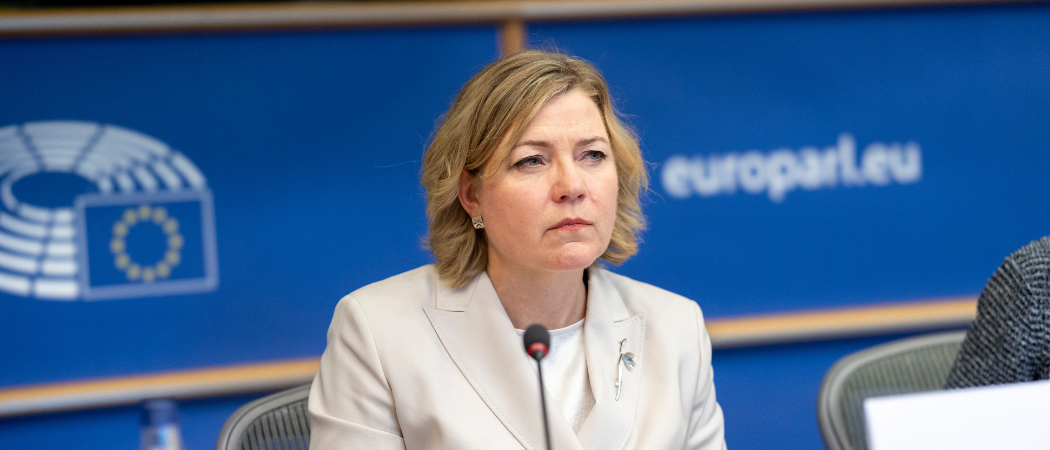While the Commission wants to collaborate more with third countries, MEPs are stressing the need for digital self-sufficiency

Henna Virkkunen, executive vice-president for Tech Sovereignty, Security and Democracy. Photo credits: Alain Rolland / European Union
Diverging approaches to technology sovereignty are emerging in the European Commission and the European Parliament, laying the ground for a future conflict over the EU’s digital independence.
On June 3, the Parliament’s Industry, Research, and Energy (ITRE) Committee adopted an own-initiative report calling for greater EU technological sovereignty and reduced reliance on third countries. This position was approved by 63 votes to five, with ten abstentions.
Two days later, on June 5, the Commission presented its EU International Digital Strategy, which foresees increased cooperation with international partners.
“The aim is to boost EU and partners' respective tech competitiveness and sovereignty, and promote joint interests, trade and investment, research or regulatory cooperation, and attract talents in the fields of digital, AI and tech,” said Henna Virkkunen, the commissioner responsible for technology sovereignty.
The countries she name-checked included Japan, Canada, Singapore, India and South Korea, but the subtext is understood to lie elsewhere.
“My take is that the Commission does not want to burn bridges with the US,” said Andrea Renda, director of research at the Centre for European Policy Studies. “Virkkunen went there recently, and her message was positive, rather than adversarial.”
Digitally dependent
According to Commission data, the EU currently relies on third countries for over 80% of its digital products, services, infrastructure and intellectual property. This dependency not only puts the European economy at risk and undermines the competitiveness of EU companies, but also poses a threat to the bloc’s security, the draft ITRE report says.
It goes on to highlight that “69% of Europe’s cloud market share is held by US companies, compared to just 13% by European companies, exposing European data to extraterritorial legislation.” Hence the importance of relocating the hosting of sensitive data to Europe.
In May, US company Microsoft blocked the email account of the International Criminal Court’s chief prosecutor after US president Donald Trump imposed sanctions on him and other court staff in response to the court's investigations into Israeli officials.
According to Aura Salla, an ITRE member for the European People’s Party, this episode shows that the EU cannot trust US operating system providers.
The Commission’s strategy seems to address this concern with a push for diversification, while not shutting out the US.
“It is clear that Europe needs to build alternatives (which could be European, or also simply non-American) at all layers of the technology stack,” Reda told Science|Business. “The International Digital Strategy leaves the door open to deepening relations with the US, but is clearly oriented towards other regions and countries,” he said, referring to Latin America, India, Africa and Japan.
According to the strategy, international partnerships will prioritise sectors including digital infrastructure, emerging technologies such as AI and quantum, and cybersecurity.
How Europe catches up
To address the gap between EU companies and their competitors in the US and China, the MEPs propose measures such as reducing regulatory barriers and increasing private investment to support the growth of European companies, particularly SMEs.
“[Experts and entrepreneurs’] testimonies on overregulation, energy prices and barriers to private investment have enabled me to develop concrete proposals,” said the ITRE rapporteur, Sarah Knafo of the Europe of Sovereign Nations Group. “These include lifting barriers to private investment in innovation, deregulating and enhancing the security level of data hosting to protect us from foreign interventions.”
Related articles
- The EU urgently needs technological autonomy from the US, MEPs say
- Viewpoint: Europe must stop chasing US technology hype cycles
- EU will focus funds on strategic technologies to boost competitiveness
The draft report says the EU is often perceived as a blocking force due to its extensive regulatory framework, particularly in the field of AI, which is also noted for its relatively low levels of investment.
In response, the draft suggests eliminating two existing regulations for every new one introduced in strategic sectors, in order to streamline and simplify the regulatory environment.
As for financial support, the report advocates prioritising private investment and fostering public-private partnerships to drive innovation and competitiveness.
“It is crucial [. . .] to support our businesses in public procurement instead of scattering ineffective subsidies, and finally, to achieve competitive electricity by eliminating anti-nuclear rules from the European electricity market," Knafo said.
The draft report will now move to a forthcoming plenary session of the European Parliament for debate.





 A unique international forum for public research organisations and companies to connect their external engagement with strategic interests around their R&D system.
A unique international forum for public research organisations and companies to connect their external engagement with strategic interests around their R&D system.